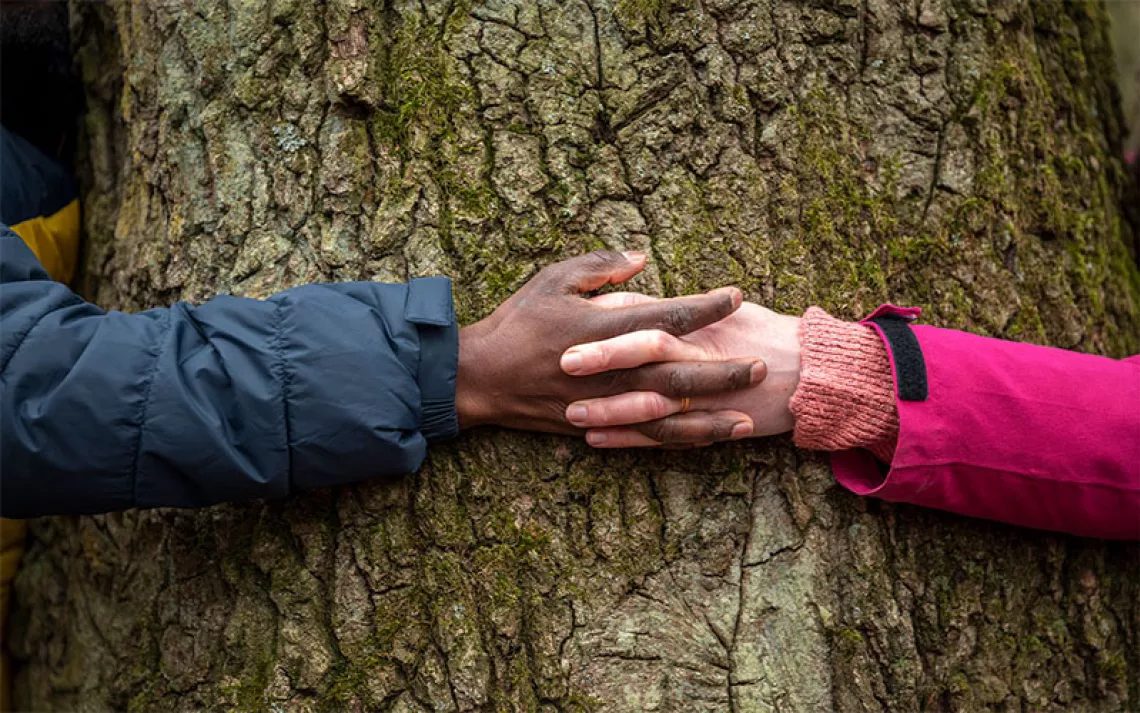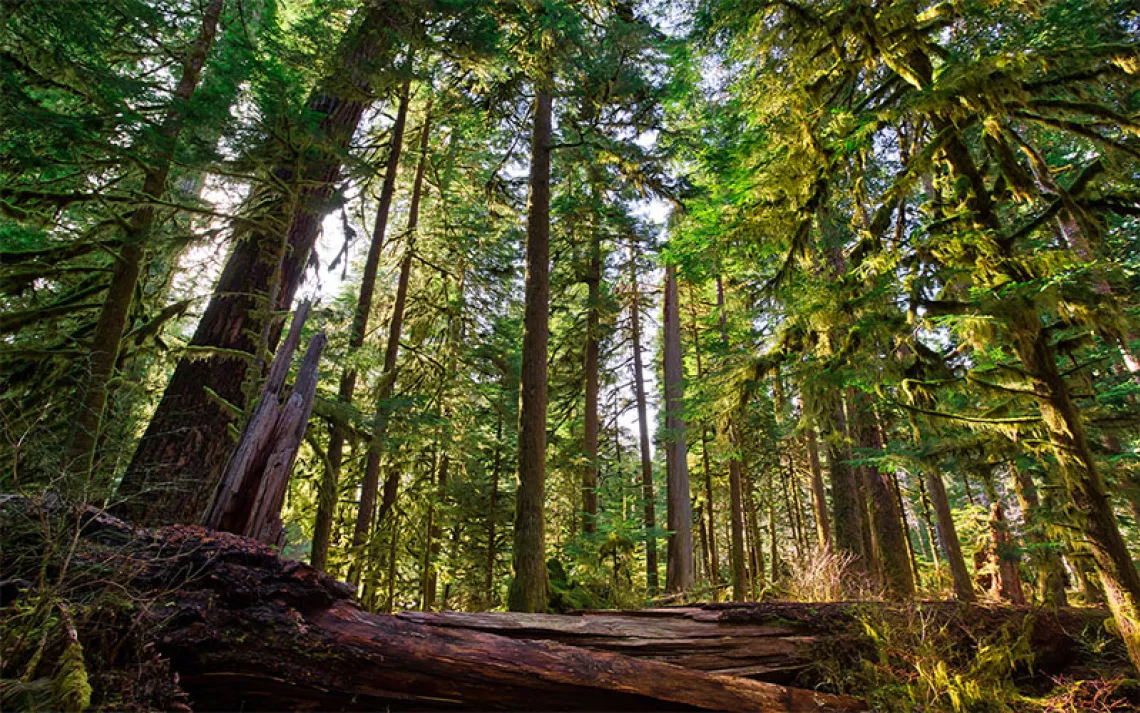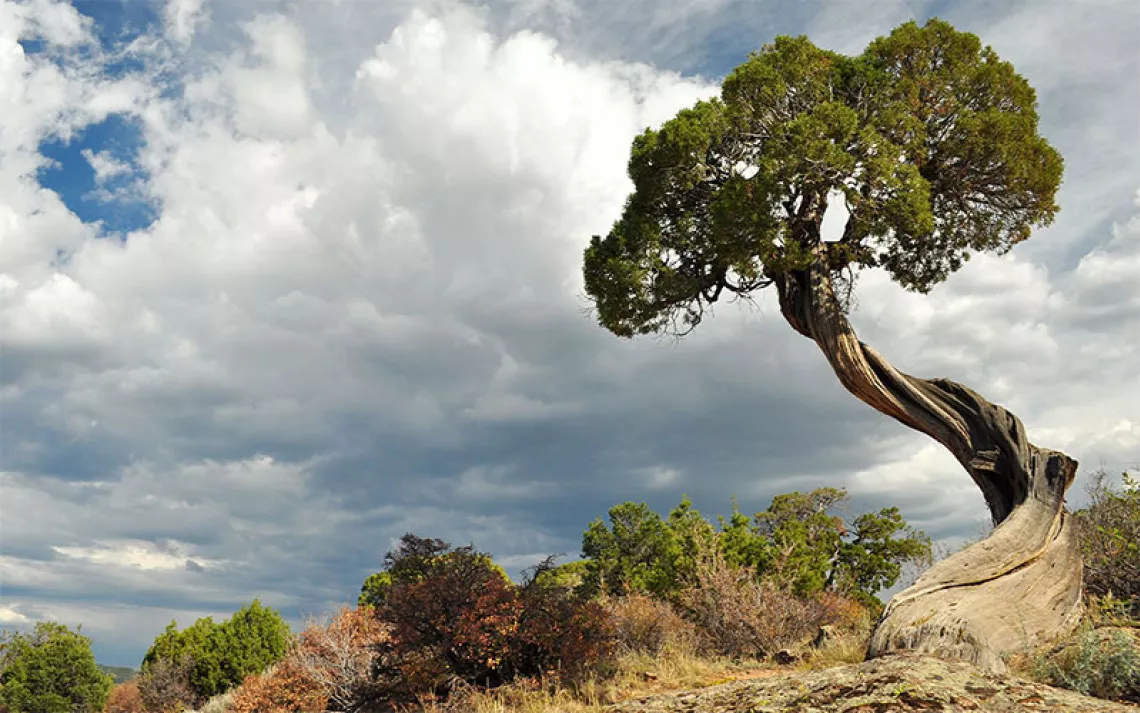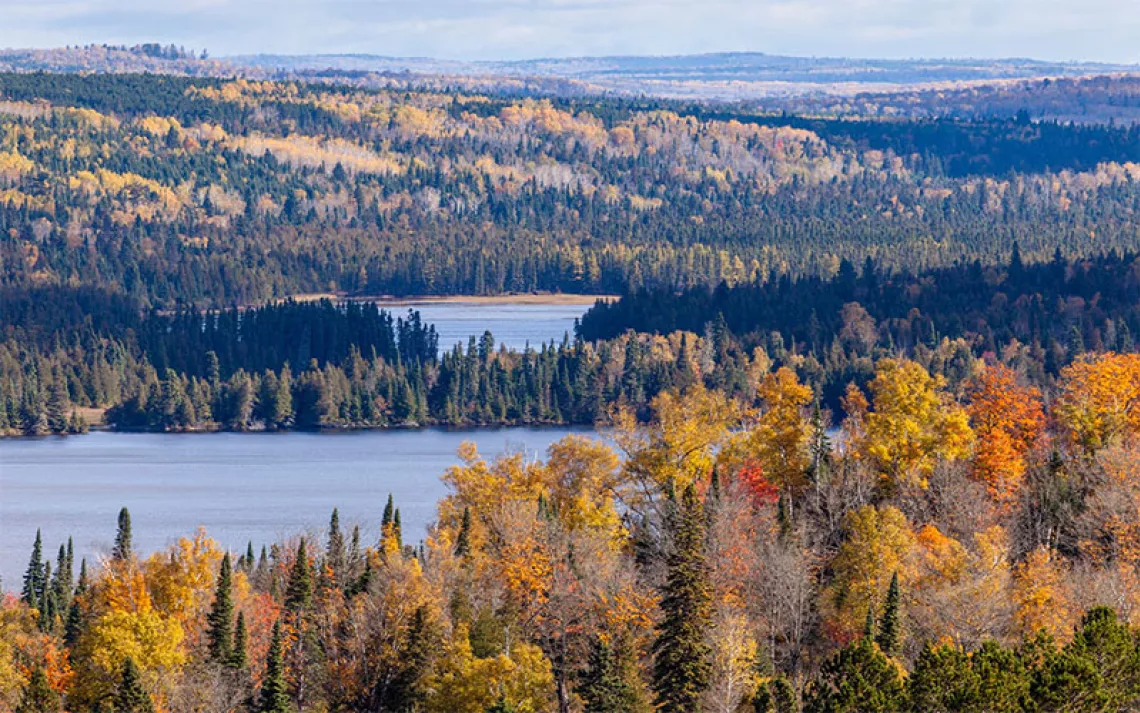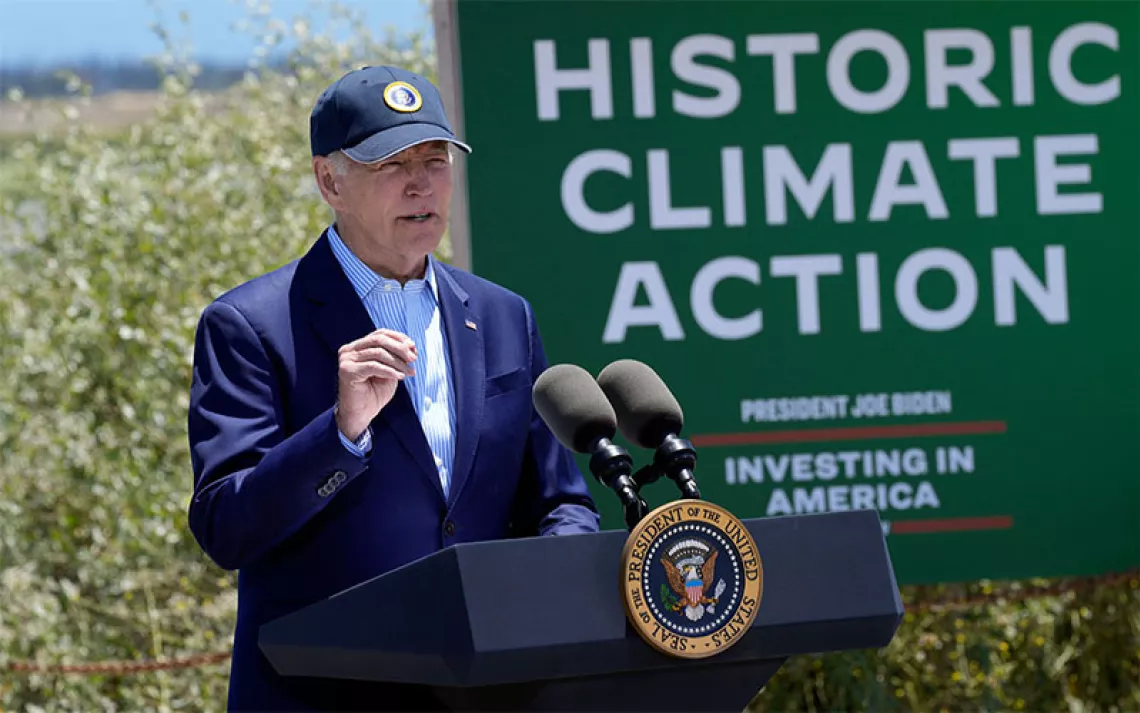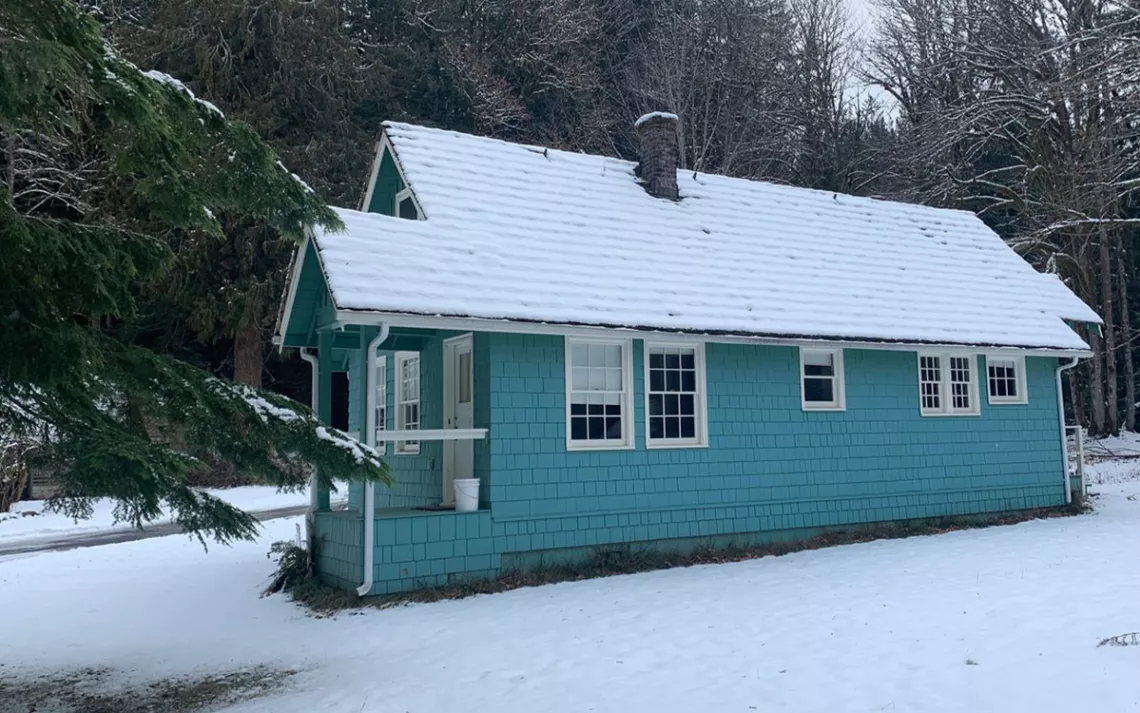Armed Groups as Forest Protectors in Colombia: A Risky Dynamic
Deforestation has dropped in the country, but the government may not be responsible for all those gains
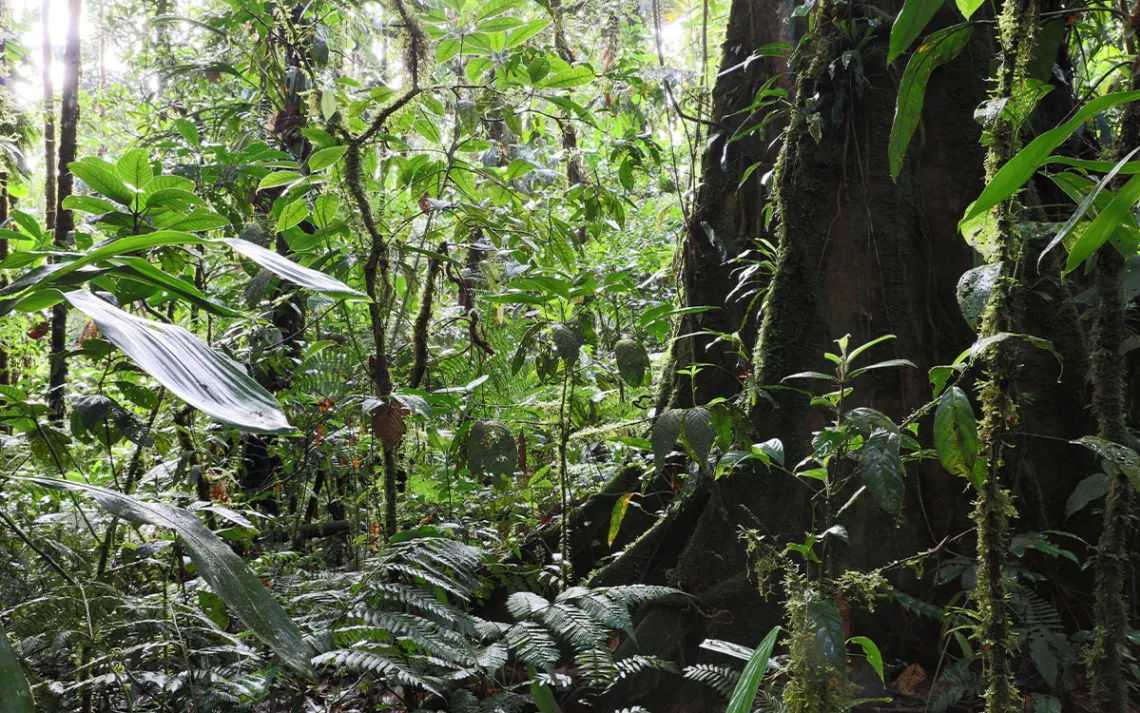
Photo by Kikkerdirk/iStock
On May 15, 2022, a guerilla group in Colombia called Estado Mayor Central (EMC) issued a surprising communique from the large swaths of Amazonian regions it controls, titled a “Manual of Coexistence.” The group announced a fine of 1 million pesos (roughly US$250) for every hectare (2.47 acres) of forest cleared. In the same communication, it also banned the sale of uncultivated land without express permission from its leadership.
The declaration didn’t generate much national attention at the time. The first round of presidential elections were well underway and leftist candidate Gustavo Petro was gaining momentum. Running on a platform of economic reform, a transition to clean energy, environmentalism, and peace-building, Petro went on to win in a country that had been dominated by right-wing governments for decades.
Since Petro took office a year ago, deforestation, which had risen exponentially under the previous administration, began to steeply fall off to the lowest levels seen in over a decade. The government was happy to take credit for the drop, attributing it at the time to the government working with local communities, paying them to safeguard forests, and criminal prosecutions of illegal logging and mining operations.
But some experts point to criminal armed groups as one reason that the forests are being protected. Just how true that is depends on whom you ask.
During Colombia’s 53-year civil war with rebel group the Revolutionary Armed Forces of Colombia (FARC), the guerilla group, despite running roughshod over the environment in a number of other ways, tended to restrict deforestation in the regions where it operated. “One of the reasons for that policy was that a thick jungle canopy prevented aerial surveillance by the state in regions they controlled,” Bram Ebus, Amazon and environmental analyst for the International Crisis Group, told Sierra.
In 2016, the FARC disarmed en masse as part of a peace deal with the government. Other armed groups moved in, conducting illegal land grabs, mining, logging, and coca production. In the years that followed the ceasefire, deforestation in delicate rainforest ecosystems skyrocketed, increasing by 44 percent in 2016 alone, according to government statistics.
Large areas of the Amazon jungles are classified as national parks, protected from development, at least in theory. But in Colombia, many of those areas exist outside of state control. “Government park rangers, by protocol, will not enter park areas where armed groups maintain a presence,” said Ebus. And even those areas were not immune to environmental devastation in the years that followed.
EMC began to expand in power and territory, led by a FARC commander named Ivan Mordisco, after splitting from the 2016 peace negotiations. As the Petro campaign gained momentum in early 2022, he floated a “Total Peace” plan to negotiate directly with criminal armed groups. That gave EMC more motive to demonstrate its power ahead of talks. “This changed the motives of armed groups to reduce deforestation,” said Ebus. “The rules have changed. Mordisco knows protecting the Amazon is high on Petro’s agenda. If they can show they have control over that issue, it increases their negotiating power with the government.”
Petro has strongly advocated for a green energy transition and environmental policies. Shortly after he took office, Colombia ratified the Escazú Agreement, a region-wide conservation and environmental justice accord in Latin America. Petro played a leading role in the recent Brazil Amazon summit that led to the Belém declaration. And he has raised the idea of debt swaps to fund green initiatives as part of US-Colombia relations.
In September 2022, a month after Petro took office, EMC called for the total suspension of logging “until an institutional solution for the rural poor who lack economic inclusion and land opportunities arise for them in these four years under the government of Dr. Gustavo Petro."
But Eduardo Rojas, who is an Indigenous farmer in Caquetá, an EMC stronghold in the Amazon region, says the armed group’s calls for forest protection are dubious. “They lay claim to land that isn’t theirs and charge a ‘tax’ on farmers who want to breed cattle or seed crops,” he told Sierra while attending a protest in Bogotá over rising violence against Indigenous communities. “They extort us to use our own land.”
“Yes, they have in some ways protected our forests,” he continued. “But is it to save the lands, or to hold them hostage?”
Though Ebus and Rojas both agreed that regulations imposed by armed groups have led to a drop in deforestation in the past year, this dynamic comes with a risk—and their motives are not as noble as they claim.
Further complicating this dynamic, large cattle ranchers often see fines by armed groups as an opportunity to grab land illegally. “Some see these payments to armed groups as ‘certificates’ to operate on land that often exists outside of any legal system. We are talking about areas where no official records are kept, and ownership deals are often informal,” said Ebus. “Wealthy investors are entering some of these areas with the implicit approval of criminal actors. And this also serves as a revenue stream for armed groups, who ‘tax’ or extort their operations.”
In Caquetá, where Rojas lives, the amount of forest that has been cleared for cattle ranching has doubled since 2016. But the Amazonian soil in the region is not suitable to sustain grasslands needed for long-term cattle ranching. That creates a negative feedback loop in which more forest is cleared to expand pastures as overgrazing leads to decreased grass coverage. Armed groups “do not care about the earth or our lands,” said Rojas. “To them, money is the only motive.”
Petro’s strategy of negotiation with armed groups has yielded mixed results. A formal ceasefire in August with the largest remaining rebel group in the country, the National Liberation Army, has so far held. But a number of informal ceasefire agreements with other criminal groups earlier this year have since fallen apart.
The government entered negotiations for a formal ceasefire with EMC on October 8, which could lead to more rainforest preservation. “Protection of rainforests, which are incredibly valuable not only for their diversity, but are also one of the biggest carbon sinks in the world, cannot be outsourced to non-state actors,” said Ebus.
 The Magazine of The Sierra Club
The Magazine of The Sierra Club
